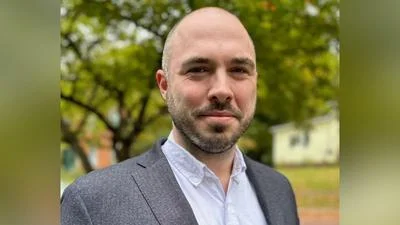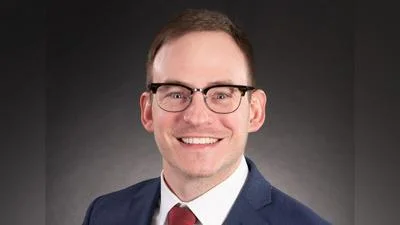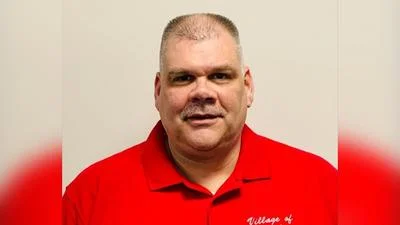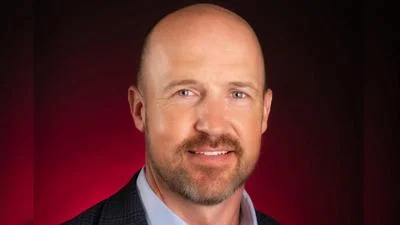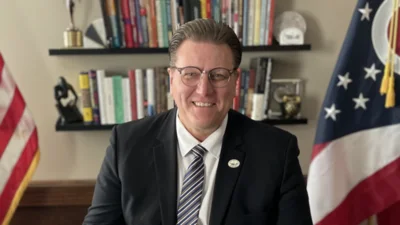State Rep. Beth Lear (R-Galena) is advocating for the protection of free speech for healthcare providers following Governor Mike DeWine's veto of a key provision in House Bill 315.
The vetoed measure would have shielded doctors from disciplinary action for expressing medical opinions that deviate from mainstream consensus, particularly those related to COVID-19 vaccines and other treatments.
Lear said it is critical to uphold the right of doctors to speak freely, especially in light of the challenges they faced during the pandemic.
“Both the Ohio Constitution, in Article 1 Section 11, and the US Constitution in the 1st Amendment guarantee the right to free speech and prohibit government from abridging or restraining it,” Lear told the Mount Vernon News.
“Doctors have those same rights. In this time when ‘experts,’ especially those in the healthcare industry, have had their reputations harmed by COVID government overreach and questionable science, it is imperative we uphold the right of free speech for doctors, and allow patients to accept or refuse doctor’s recommendations, instead of allowing bureaucrats to provide one-size-fits-all requirements for health.”
Her comments follow DeWine’s veto of the provision, which was part of a broader piece of legislation, House Bill 315.
The vetoed measure would have prevented state agencies like the Ohio Department of Health and the State Medical Board from disciplining doctors who express views contrary to the official narrative.
DeWine vetoed this section of the bill, citing concerns that it could compromise public safety by allowing harmful or misleading medical advice to go unchallenged. He explained in his veto message that allowing doctors to freely express controversial opinions without oversight could have “devastating and deadly consequences for patient health.”
Lear maintains that current laws already address medical malpractice and that the vetoed provision was not about protecting harmful practices.
“There are criminal and civil statutes in law already that provide consequences for true medical malpractice,” Lear said. "Giving non-elected regulators the authority to limit speech, and thus limit medical options, is unacceptable.”
Lear also referenced the controversy surrounding treatments like ivermectin and hydroxychloroquine, which became widely discussed during the COVID-19 pandemic.
While the drugs were promoted by some as potential treatments for COVID-19, both the FDA and the medical establishment restricted their use for that purpose.
Lear claims that misinformation about these drugs, as well as other treatments, was often spread by “so-called experts” and government officials, leading to confusion and, in some cases, harm.
“Misinformation and harmful practices, including the vilification of ivermectin and hydroxychloroquine, were spread by so-called experts and government bureaucrats resulting in lost lives,” she said. “Our responsibility is to protect against that.”
Lear’s position is part of an ongoing debate about the role of government and regulators in managing medical speech and professional conduct.
Doctors such as Houston-based Mary Talley Bowden, M.D., were subjected to discipline from health boards and hospitals for their opposition to government COVID-19 narratives.
Talley Bowden, who has discussed her fight against medical censorship during the COVID-19 pandemic, including her use of off-label treatments like ivermectin and hydroxychloroquine in defiance of federal and state mandates, was suspended by Houston Methodist Hospital and charged by the Texas Medical Board with violating standards of care and unprofessional conduct.
DeWine, while vetoing the free speech protection, did sign other parts of House Bill 315 into law, including provisions that restrict the influence of the World Health Organization in Ohio and regulate the use of off-label drugs.
The overall bill reflects the continued tension between public health mandates and individual freedoms, particularly in a post-pandemic world where questions about medical advice and expertise have become more politicized.
During the COVID-19 pandemic, medical doctors with viewpoints differing from the government narrative faced not only discipline for their medical opinions but also government-sponsored censorship.
U.S. Rep. Jim Jordan, who represents Ohio's 4th Congressional District, noted the censorship of medical opinions that later turned out to be correct.
Jordan said what the government, mainstream media, and medical professional overseers reinforced to the American public was false.
“Almost everything they told us turned out not to be true, Didn't come from a lab, wasn't gain of function research. Wasn't our tax money used in the Wuhan lab? Look, all those seem to me to not be true,” Jordan said in a 2024 interview with Russell Brand. “Vaccinated. Can't get (Covid-19 if) vaccinated. Can’t transmit it. Masks work. Six foot social distancing was based on science. There's no such thing as natural immunity. There's like eight lies right there.”
“So at some point, we just like, why should we believe anything you tell us about this virus, right? And the worst was, though, when they said to men and women in our military, ‘if you don't get the shot we're going to kick you out.’ And they tried to say it to businesses. If you don't have people to get the vaccine, they can't work. This is America, for goodness sake. You can't do that."
Lear serves Ohio's 61st House district, covering eastern Delaware County and western Knox County.



